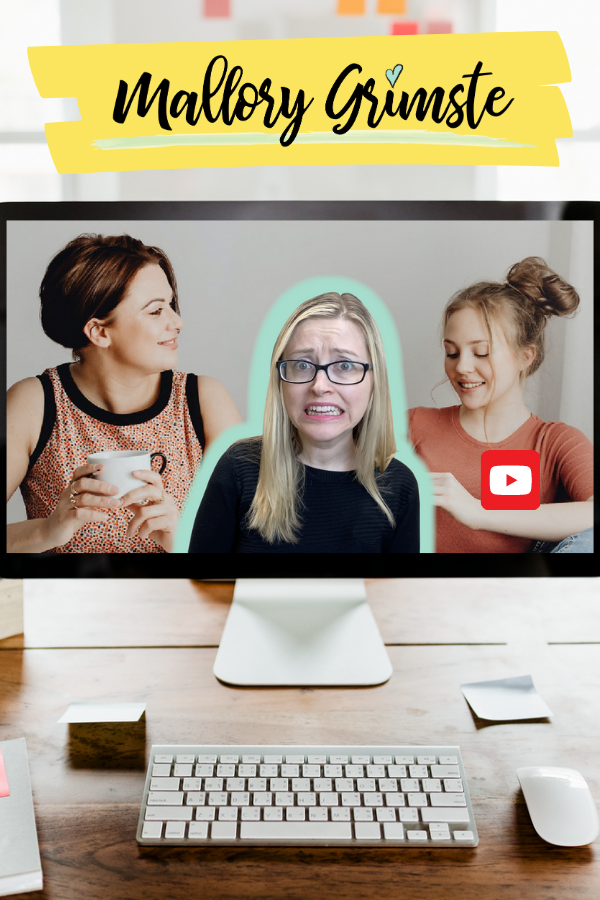Therapist explains how to get motivated so you can get your life together in high school
Therapist explains how to get motivated so you can get your life together in high school video post from Mallory Grimste, LCSW (counseling practice based in Woodbridge, CT).
5 Therapist Approved coping skills for teenagers who struggle with depression
5 Therapist Approved coping skills for teenagers who struggle with depression video post from Mallory Grimste, LCSW (counseling practice based in Woodbridge, CT). Coping with Depression doesn’t have to be a struggle for teenagers.
How to ask your parents for therapy using DEAR MAN
How to ask your parents for therapy using DEAR MAN video post from Mallory Grimste, LCSW (counseling practice based in Woodbridge, CT). Asking your parents to take you to a therapist can feel really, really scary- especially for teenagers. This video post shares how to use DBT’s DEAR MAN strategy to ask parents for therapy.
What if you're too anxious to show up for help? Try these 4 Therapist-Approved coping skills for teenagers
4 coping skills for teenagers who are anxious about going to group therapy video post from Mallory Grimste, LCSW (counseling practice based in Woodbridge, CT). What if you’re too anxious to show up for help? Try these 4 therapist approved coping skills for teenagers
DBT treatment vs DBT-informed therapy? What's the difference and why it matters
DBT treatment vs DBT-informed therapy? What's the difference and why it matters video post from Mallory Grimste, LCSW (counseling practice based in Woodbridge, CT). I love Dialectical Behavior Therapy but I'm not a DBT therapist. There is a difference between DBT treatment vs DBT-informed therapy. It can be a bit confusing if you're not familiar with what the differences are and why it matters. After all, isn't DBT just Dialectical Behavior Therapy? Well.... yes and no.
These are the 4 types of coping skills every teenager needs to know in 2021
These are the 4 types of coping skills every teenager needs to know in 2021 video post from Mallory Grimste, LCSW (counseling practice based in Woodbridge, CT). There are 4 types of coping skills every teenager needs to know in 2021 (+ beyond). I love the way that Dialectical Behavior Therapy (DBT) breaks coping skills into 4 different types of coping strategies in their Distress Tolerance module. This video will review what each of these 4 types of coping skills are, and how teenagers can choose the right type for their needs to cope with 2021 and beyond. Let's build mental health awareness and break mental health stigma with these 4 types of coping skills in 2021 + beyond!
5 Therapist Approved Coping Skills for Teenagers who struggle with ANXIETY 😣
5 Therapist Approved Coping Skills for Teenagers who struggle with ANXIETY 😣 video post from Mallory Grimste, LCSW | Teen Therapist (counseling office located in Woodbridge, CT). As a teen therapist who specializes in helping teens who struggle with anxiety- I know which coping skills typically work best. That why in this video I'm sharing 5 Therapist Approved coping skills for teens who struggle with anxiety.
Here’s how to Face Your Fears and talk to your parents about your mental health + get help (responding to your comments)
how to face your fears and talk to your parents about your mental health + get help (responding to your comments) video post from Mallory Grimste, LCSW (counseling practice based in Woodbridge, CT).
How to cope with anxiety as a teenager in 2021
How to cope with anxiety as a teenager in 2021 video post from Mallory Grimste, LCSW (counseling practice based in Woodbridge, CT).
How to set healthy boundaries with your friends and family
how to set healthy boundaries with your friends and family as a teenager video post from Mallory Grimste, LCSW (counseling practice based in Woodbridge, CT).










